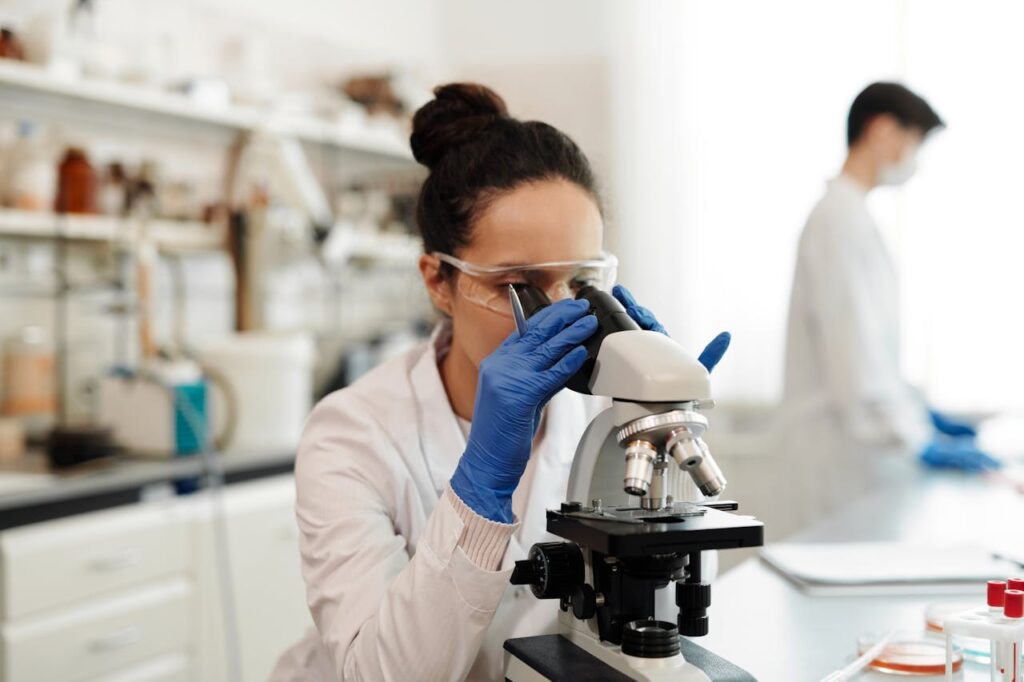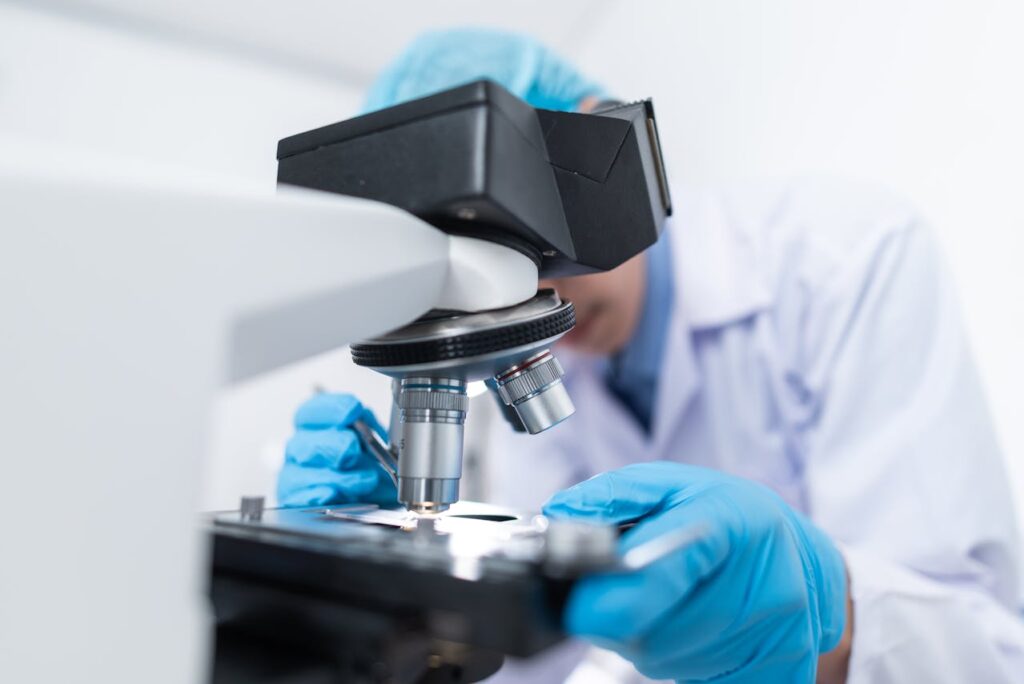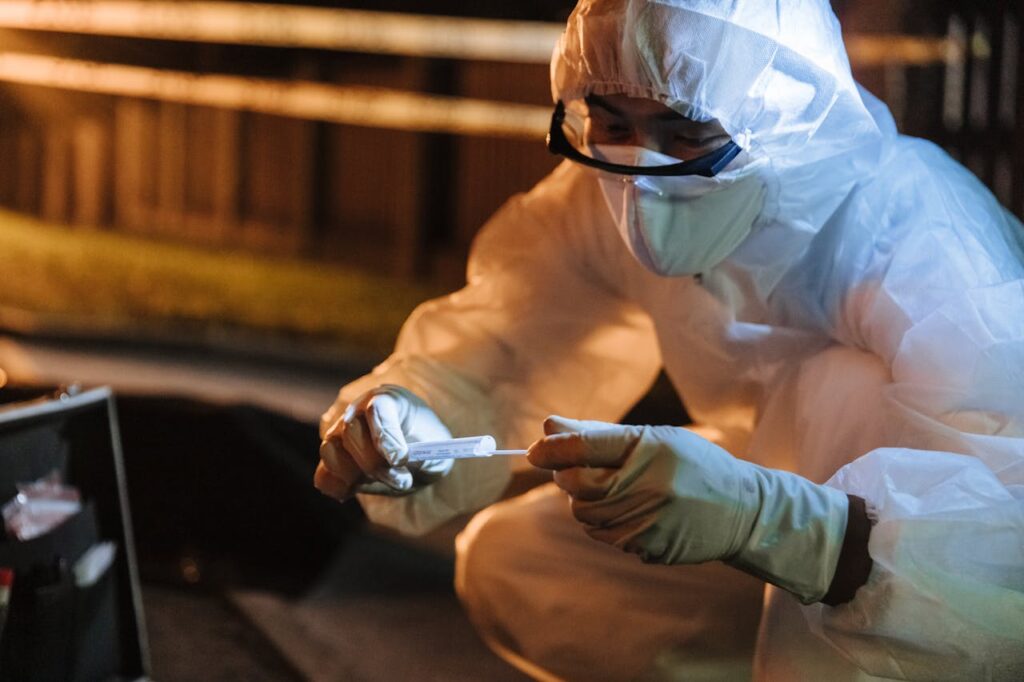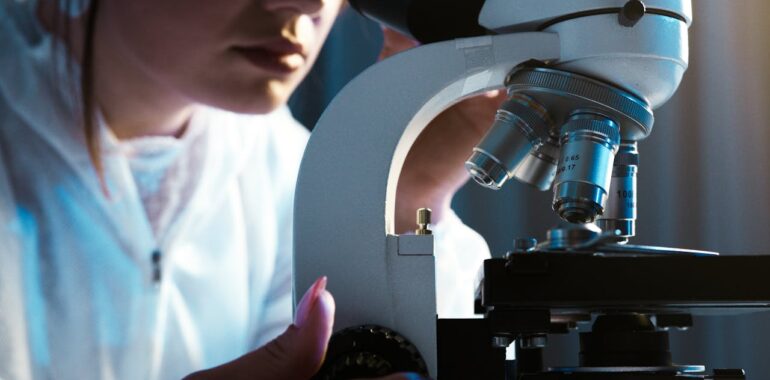Key takeaways
- Attending a forensic science school can help you enter the field of criminal justice, as forensic science is at the center of the ever-evolving crime scene landscape.
- Though forensic science and criminology are two different fields, they fall under the broader criminal justice field.
- Forensic science technician programs are vocational training programs featuring a blend of crime scene investigation techniques, lab skills, digital forensics, legal training, and more.
- Trained forensic science technicians can aid criminologists by providing insights into crime and criminal activities.
- With a forensic science technician education, you can pursue a variety of criminology jobs such as criminology research assistant, forensic intelligence analyst, and more.
- Albany State University, Bowling Green University, and Eastern Kentucky University offer accredited forensic science programs.
- You can access the full list of accredited forensic science colleges at the American Academy of Forensic Sciences (AAFS).
The world of criminology and criminal justice is no longer what it was around 10 years ago. Growing digital technologies have evolved the way criminals conduct crimes, the nature of crime, and how criminal justice professionals handle these crimes. A forensic technician is at the center of the process, leading the change and playing a pivotal role in criminal investigations.
This guide examines how attending a forensic technician school can help you pursue a career in criminology and criminal justice. Here, you will find what you will learn through forensic technician programs and the career paths you can take after graduation.
Related: What are the courses needed to be a forensic scientist?
What is the role of a forensic technician in criminology?

Forensic technicians are at the center of all criminal investigations. Since the fields of criminology, and criminal justice are interrelated, the role of forensic technicians extends well beyond criminal investigations. But before we take a deep dive into forensic technician schools and what you can expect to learn through forensic technician programs, let’s first understand the link between forensics and criminology.
What is criminology?
Criminology is the study of crime and criminal behavior. Criminologists analyze the evidence, crime scene, crime report, witness statements, and criminal statements, and use psychological theories and principles to better understand what pushes criminals to commit crimes. Moreover, they try to gauge the criminal’s thought process, which helps criminal investigators and criminal justice professionals better understand their Modus Operandi (MO).
Related: Why study criminology?
Understanding the MO helps criminal justice professionals, such as Detectives and FBI Profilers, create criminal profiles. These profiles map out indicators, motives, and many other details that not only enable efficient criminal justice administration but also help criminal justice professionals identify at-risk individuals and take preventive measures.
You may also be interested in: How to become and FBI profiler?
How do forensic technicians aid in criminology?
Forensic technicians are trained experts responsible for collecting and preserving evidence. They are among the first to visit the crime scene and scour it in detail, collecting everything from a rag to a hair, fluids, fingerprints, and more. Their job is to recover, preserve, and safely transport anything that counts as evidence. Moreover, they photograph the crime scene in detail so that it can be analyzed over and over again by criminal justice, criminal investigation, and criminology professionals.
Related: How to become a crime scene technician?
Forensic technicians also analyze the evidence gathered to find facts that can help investigators identify the culprit and get insights into how the crime was committed. Thus, they work closely with criminology professionals, helping them understand the evidence gathered, providing insights into technicalities, and pointing out oddities that criminologists can further explore.
If you are interested in pursuing a career in criminology but do not want to be tied down to a desk, consider enrolling in forensic technician colleges. You can also obtain the training needed to become a forensic science technician through trade schools for forensic science, which specialize in skill-based training.
What does a forensic technician school entail?

A forensic technician school is essentially a vocational training school that specializes in imparting the skills and knowledge needed to pursue a career as a forensic technician. The program generally combines the scientific and technical aspects of forensic analysis and crime scene investigations.
Here, you will undertake courses and training that combine theoretical learning, laboratory training, hands-on field work, and additional skills discussed below.
Crime Scene Investigation (CSI) techniques
Crime scene preservation and assessment are absolutely essential for a free and fair criminal investigation. Without proper crime scene investigation, solving a criminal case is next to impossible. Here are some essential CSI techniques you will learn in forensic technician school.
Related: How much do Crime Scene Investigators make an hour?
- Setting a crime scene perimeter – establishing an accurate perimeter to prevent crime scene contamination and ensuring no piece of evidence is left uncollected.
- Evidence collection procedures – learn how to collect evidence to prevent the risk of cross-contamination, allowing for a free and fair criminal investigation.
- Different documentation techniques – Photography, videography, sketching, note-taking, and other means of documenting evidence.
- Chain of custody documentation – maintaining a detailed record of who handles the evidence.
- Blood spatter analysis – analyzing blood spatter to determine angle of attack and other important details, including the murder weapon.
- Latent fingerprint development – learn different techniques to collect fingerprints found on the crime scene.
Scientific laboratory skills
To analyze the gathered forensic evidence, you need to conduct extensive tests in the laboratory. Some lab procedures you will learn in forensic technician colleges include:
- DNA testing
- Toxicology testing
- Fingerprint analysis
- Trace evidence examination
- Ballistics analysis
- Chemical analysis
- Drug identification
Legal and ethical training
The evidence found through forensic analysis will only be submittable in court if the forensic technician has followed all required protocols, rules, and regulations. Thus, students learn:
- Rules of evidence as laid down by the court
- Search and seizure laws
- Courtroom testimony skills to serve as an expert witness
- How to conduct an unbiased analysis
- Ethical dilemmas in forensic science
- Collaboration with legal and law enforcement professionals.
Technical proficiency and digital forensics training
The birth of digital forensics is in part due to evolving digital technologies, which are directly changing the nature of crime. To combat evolving crime, here are the skills you will need.
- Recovering data from phones, tablets, storage, and other electronic devices
- Cybercrime investigation techniques
- Surveillance technologies
- Knowledge of forensic software and databases
Interdisciplinary collaboration
Forensic technicians must collaborate with multiple departments and coordinate with multiple people involved in criminal investigations. These include police departments, detectives, lawyers, and so on. Skills needed for effective collaboration include:
- Written communication
- Ability to communicate findings clearly and concisely
- Visual presentations
- Effective collaboration between multiple departments
How do forensic technicians contribute to criminology?
Some people may argue that forensic technicians and criminology professionals belong to two completely different fields. While that is true to some extent, the two fields essentially fall under the same category of criminal justice, and the two professionals collaborate more often than many would believe.
So, for those wondering whether forensic technician school leads to a career in criminology or not, then yes, it does. Here are the skills you learn in forensic technician programs that may enable you to pursue certain criminology jobs.
- The ability to analyze and gather evidence, such as that in DNA, can help identify serial killers.
- Studying the Modus Operandi of criminals can help understand the motive and provide insight into the mindset of the criminal.
- Drug toxicology can explain certain behaviors, including addiction, criminal behavior, and so on.
- Digital evidence can help identify evolving trends in crime.
These are just examples of skills learned in forensic technician schools that can be beneficial for a transition to the field of criminology. Moreover, forensic technicians can work in collaboration with criminology professionals to develop theories, conduct research, and present findings that can aid policy creation for the prevention of crime and the treatment of incarcerated criminals.
Criminology jobs you can get with a forensic technician training

If you are interested in trying out criminology jobs, here are some roles you can explore. However, keep in mind that you may need to complete additional training, especially if you aspire to obtain field jobs in criminology, such as interviewing criminals. The majority of jobs you can apply for relate to handling crime scene evidence.
Criminology Research Assistant
Average annual salary: $83,148
You will work with educators, criminology professionals, and others leading research in the field of criminology. Primary roles will be to assist those leading the research and provide empirical evidence and forensic insights to support claims.
Intelligence Analyst
Average annual salary: $73,629
Intelligence Analysts gather, analyze, and interpret evidence and information gathered to determine potential threats, identify opportunities, and turn data into actionable insights. As an intelligence analyst, you are responsible for identifying trends and patterns to ensure informed decision-making.
Crime Scene Investigator
Average annual salary: $70,504
As a crime scene investigator, you will be in charge of collecting every single piece of evidence from the crime scene. Your job will be to protect crime scene evidence from contamination, allowing for proper investigation.
Where can I find forensic schools near me?
If you reside in the US and are searching for ‘forensic schools near me’, here are a few that you can explore. The following list contains American Academy of Forensic Sciences (AAFS) FEPAC Accredited Schools.
- Albany State University
- Alfred State SUNY College of Technology
- Boston University of Medicine
- Bowling Green State University
- Eastern Kentucky University
You can access the full list of accredited Forensic science technician programs in the US here.
Forensic technician school – A smart pathway into criminology
Forensic technician school is not just for aspiring forensic science professionals. It is the ideal skill-building program that enables you to take on the challenges presented by the ever-changing world of criminology and criminal justice. As the world continues to evolve and digital technologies shape our future, crime, criminals, and criminal justice tools and technologies also evolve and grow.
As a trained forensic technician, you will be able to leverage these technologies to better understand the changing crime landscape, criminal minds, and crime behavioral patterns. Whether you want to go into forensic science, criminology, or criminal justice, this is a great vocational training program to enroll in.
